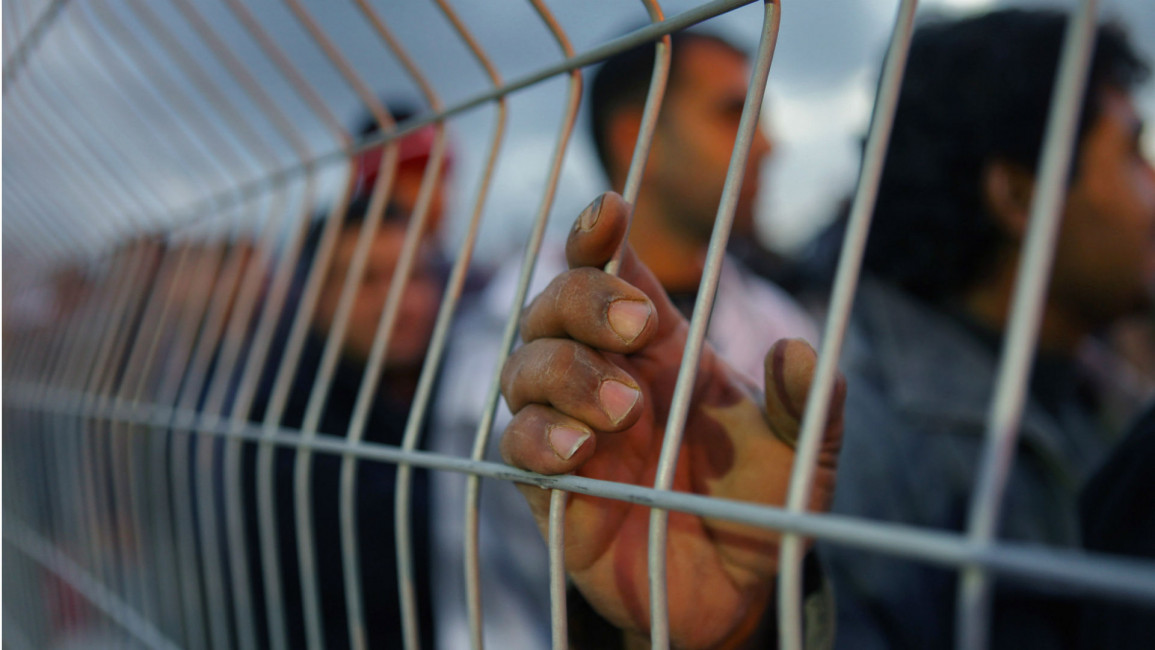West Bank checkpoint development could further divide territories
Israel has announced a redevelopment of "container checkpoint" outside the Palestinian town of al-Sawahra al-Sharqiya, south east of Jerusalem.
Military officials have ordered works to the checkpoint - formerly a couple of barriers and sentry huts at the side of the road - so it will resemble the "border crossings" found across the West Bank and Jerusalem, which are much more like airport or ferry terminals.
Changes include the installation of electronic gates on either side of the checkpoint, and facilities to search pedestrians and vehicles.
Sources from the local council in al-Sawahra al-Sharqiya say that the checkpoint occupies an important geographical location between the south and centre of the the West Bank. It is on the main route between Bethlehem and Ramallah, at the top of the infamous Wadi Nar - a winding road of ultra-tight hairpin turns snaking along the steep valley.
Residents of the southern West Bank can not travel to central or northern areas without passing through the checkpoint, where waiting times can stretch to hours.
Sources believe that the move is intended to further divide the occupied West Bank, especially in case unrest breaks out.
Locals say that, contrary to Israeli claims, the checkpoint does not serve a security purpose but it does separate south-eastern Jerusalem suburbs from the east of Bethlehem.
The real purpose of the checkpoint, they insist, is to restrict the movement of Palestinians in the occupied territories through more stringent security procedures.
| Sources believe that the move is intended to divide the West Bank in case unrest breaks out. |
Meanwhile, Israeli authorities have not explained the reason behind the changes.
Brigadier General Jibril al-Bakri, the governor of the northern West Bank city of Nablus, told al-Araby al-Jadeed that he also believes that the development is intended to separate the southern West Bank from the rest of the occupied territories.
This, he says, is part of Israel's policy of collective punishment against the Palestinian people.
More than a million people live in the south of the West Bank, and Bakri says that, with the new changes, they will be isolated from their brethren in the rest of the territory.
This will also result in catastrophic consequences for the local Palestinian economy and tourism industry.
Towns such as Hebron and Bethlehem see frequent visitors from outside the country, and tourism is an important source of finance and work for residents.
Bakri called on Palestinian officials, popular movements, and international powers to intervene and stop the "unjustified project that will only increase hardships for Palestinians".
This is an edited translation from our Arabic edition



